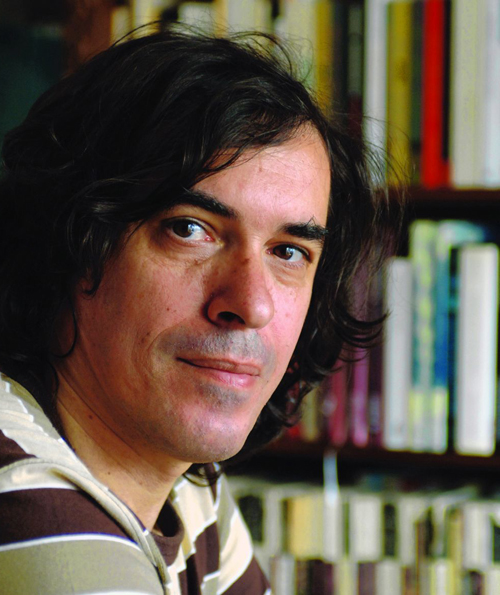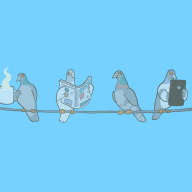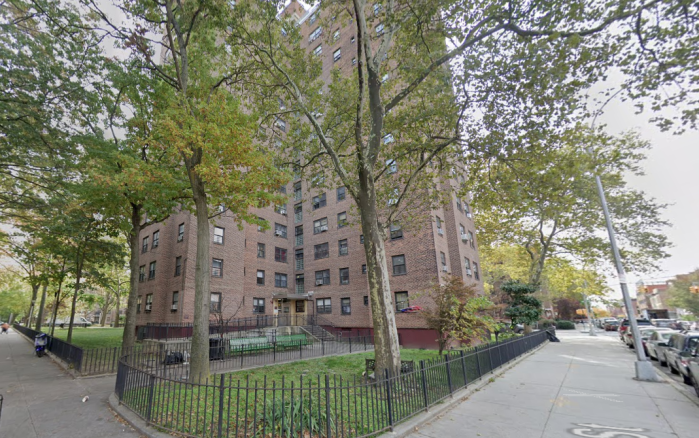“Blinding,” by Mircea Cartarescu, is a strange species. A contemporary Romanian blockbuster available in a new translation from Gowanus’ Archipelago Books, it shares elements with familiar forms — novel, memoir, manifesto — yet unfolds according to its own unique and largely private logic.
“Blinding” has the bones of an autobiography, but is also a meditation on the limits of memory and a phantasmagoric speculation on what becomes of forgotten people and places. It is an energetic, beautiful, and sometimes befuddling entity.
In the opening, a child with the author’s name views nighttime Bucharest through his bedroom window. The scene is glorious, our first taste of Cartarescu’s almost incomparable gift for description. The cityscape is seen through the window’s ghostly reflection of young Mircea’s unhappy face.
Throughout “Blinding,” we witness many wonders like this one, but always through Cartarescu, always overlaid with his visage. We go deep into the authors’s extraordinary memory and imagination, and the resultant book is as intensely and particularly his as a newborn is its mother’s.
Cartarescu is a scientist who enjoys describing, deconstructing, and reconfiguring bodies, human or otherwise. Within his tight authorial grip, creatures squirt and drip in unexpected directions, though he is neither sadistic like Burroughs, nor cold like Cronenberg. Cartarescu’s preoccupations weave through “Blinding” as recurrent metaphors. Just as a nautilus creates its own shell, “Blinding” accretes around itself the buildings and blocks of Bucharest in multiple historical eras, which prove stuffed with intriguing secrets.
In the book’s middle portion, characters bump against the glass of the narrative aquarium, bemoaning their fates as minor figures in a book focused elsewhere. Their misbehavior raises a troubling question: if they, the participants, are not satisfied with their roles as written, should the reader be? Since anything can happen at any time — usually the event is something vivid, grotesque, and surreal — there is little conventional plot tension, and readers who are not charmed by a given digression will find themselves left to contemplate the book’s larger structure.
This three-part book is just one piece of an even larger trilogy, and no work this long, ambitious, and unusual can please every taste throughout. To some, the very length may prove an issue. And because Cartarescu’s fancies and scenarios are so fresh, the occasional cliche clangs louder than it otherwise would.
The author’s childhood anchors the most compelling writing and, fortunately, comprises the majority of the book. In the final third, we accompany the young narrator in and out of hospitals. A sickly adolescent protagonist in a very long book about memory — what could be more Proustian? Yet somehow there are no tracks in this enchanting, unnerving wilderness except Cartarescu’s; his subject matter remains his alone.
It is testament to translator Sean Cotter’s skill that this English version fairly vibrates with immediacy, its jungle-cat vigor apparent even during the book’s melancholy moods. Reading “Blinding,” the tears we feel on our face are unmistakably Cartarescu’s, and it is Cartarescu’s hand we feel tugging us down the twisting lanes between apartment towers, out to the far fringes of his personal past, whether remembered, reconstructed, or marvelously and eloquently re-imagined.
“Blinding” available at Greenlight Bookstore [686 Fulton St. between S. Elliott Place and S. Portland Avenue in Fort Greene, (718) 246–0200, www.greenlightbookstore.com].






















